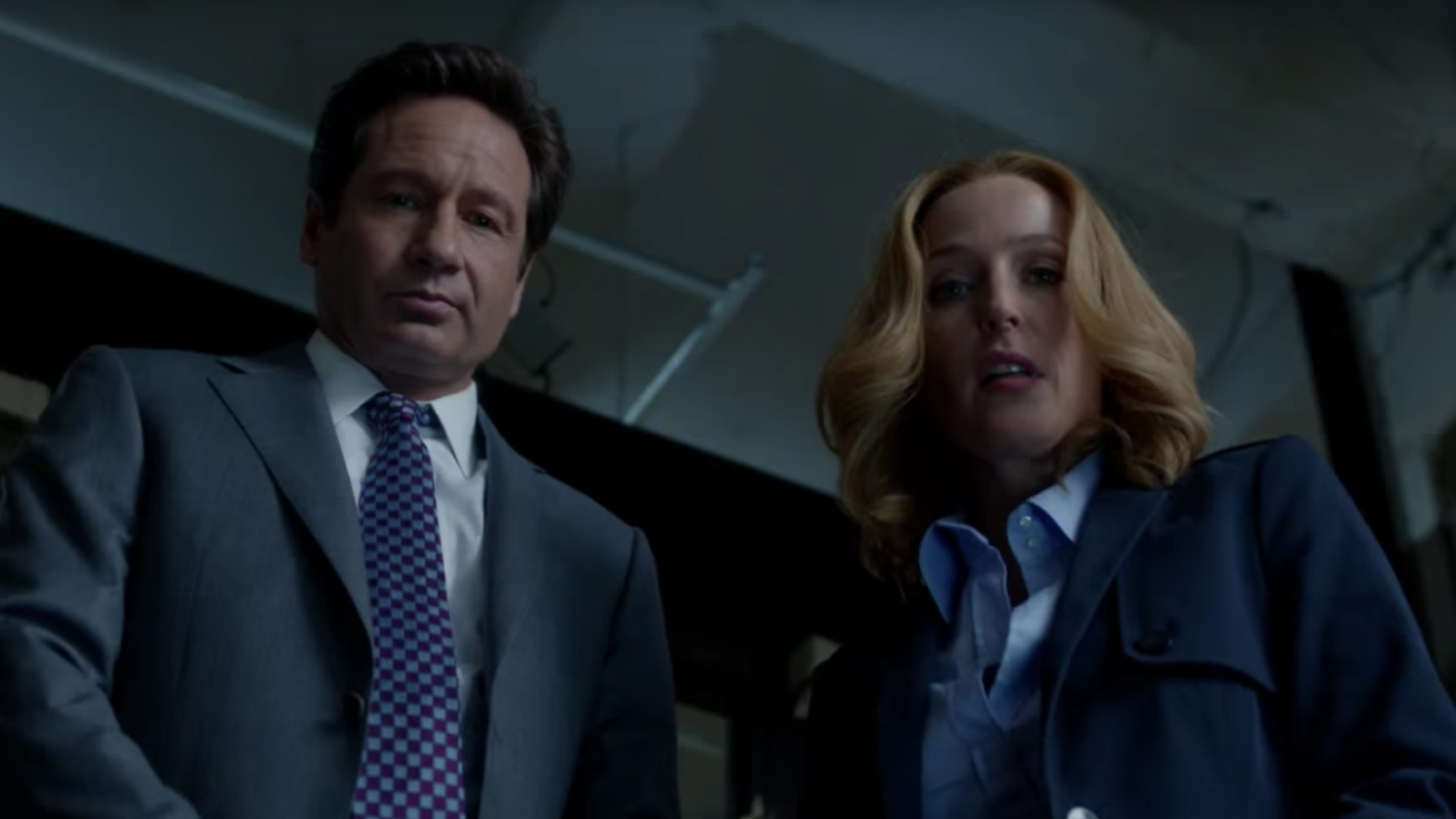X-Files star's unequal pay battle is part of an uglier truth
Opinion: Before you watch The X-Files this weekend, know this

X-Files, the revival, debuts January 24, bringing Agents Mulder and Scully and their obsession with finding "the truth" about aliens back into our lives, if only for six episodes.
Much has changed in the last 23 years since the show first aired, from hairstyles to presidents to even the number of planets in our solar system, but one thing remains, shockingly, a constant: how much the stars of the show were offered for their work.
Gillian Anderson, a.k.a. Dr. Dana Scully, first told The Hollywood Reporter and then again The Daily Beast that the Fox network* initially offered to pay her half of what was offered to David Duchovny, a.k.a. Fox Mulder, for the special miniseries.
This wasn't a new practice: For the first three years of the original show, Anderson was paid less than Duchovny (and was even instructed to stand a few feet behind him in scenes). She eventually secured equal pay - and equal footing - only to have the issue resurface almost a quarter of a century later.
"I'm surprised that more [interviewers] haven't brought that up because it's the truth," Anderson told TDB of again being presented with less-than-equal pay. "Especially in this climate of women talking about the reality of [unequal pay] in this business, I think it's important that it gets heard and voiced. It was shocking to me, given all the work that I had done in the past to get us to be paid fairly. I worked really hard toward that and finally got somewhere with it."
Sources told The Hollywood Reporter that, in the end, Anderson and Duchovny received equal pay for the revival, but Anderson's experience is emblematic of similar ones of other women - and minorities - in every field, from Hollywood to tech, to the arts and world financial institutions.
A never-ending story
My first feeling upon reading Anderson's account was one of outrage (as I've experienced before), but mingled in was the familiar sensation of non-surprise. Not that I expected or think that Anderson should have been paid less than her male co-star, of course, but because the narrative of gender inequality has grown so pervasive and new cases continue to pop up almost daily.
Sign up for breaking news, reviews, opinion, top tech deals, and more.
And while the conversation about gender and racial inequality in the workplace is happening and we're starting to see some long-overdue progress, Anderson's present-day battle is a sign of just how far things still need to go.
At this week's Davos World Economic Forum, 17.8% of the 2,500 participants were female, which is actually a (small) improvement, according to The New York Times. Here, gender inequality was finally brought out of the shadows and into panel sessions so the problem and solutions could be discussed in a meaningful way.
Just today, amid the #OscarsSoWhite controversy, the Academy of Motion Pictures and Sciences announced it will work to double the number of women and "diverse members" of its ranks by 2020. This, along with changes to its voting rules, should result in more racially diverse nominees, as well as female directors and other professionals who aren't actresses.
The tech sector is beginning to turn the tide on gender inequality (spurred by greater public awareness of how few females and minorities actually work for these companies), but progress is slow.
For example, Apple revealed in a regulatory filing earlier this week that it slightly increased the number of women and non-white employees in its US workforce, but the vast majority of its US employees (as at other tech giants) are white and male. The number of female managers and executives were also down 0.6% in the period of Apple's reporting.
One significant victory is that we are starting to see more representations of lead female and minority characters in TV shows - Narcos, Masters of None, Orange is the New Black, Grace and Frankie (ageism be damned), Empire and Jane the Virgin are just some of the titles that come to mind. Yet this makes it all the more maddening that Anderson would even have to entertain the question of how much she should be paid in comparison to her male co-star.
I commend Anderson, along with thousands of other women and minorities in every kind of occupation, for speaking up and speaking out. Things are getting better, yes, but we have a long, long way to go.
*I asked the Fox network for comment on Anderson's claim and haven't heard back yet.

Michelle was previously a news editor at TechRadar, leading consumer tech news and reviews. Michelle is now a Content Strategist at Facebook. A versatile, highly effective content writer and skilled editor with a keen eye for detail, Michelle is a collaborative problem solver and covered everything from smartwatches and microprocessors to VR and self-driving cars.